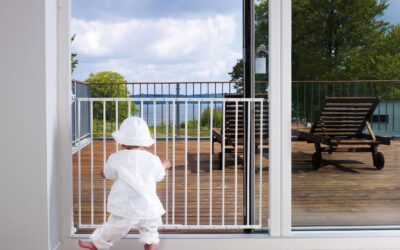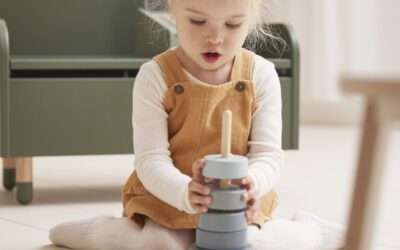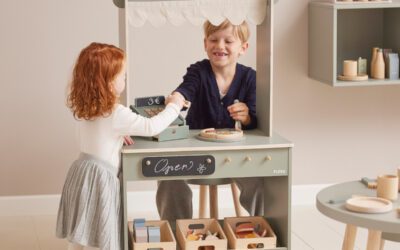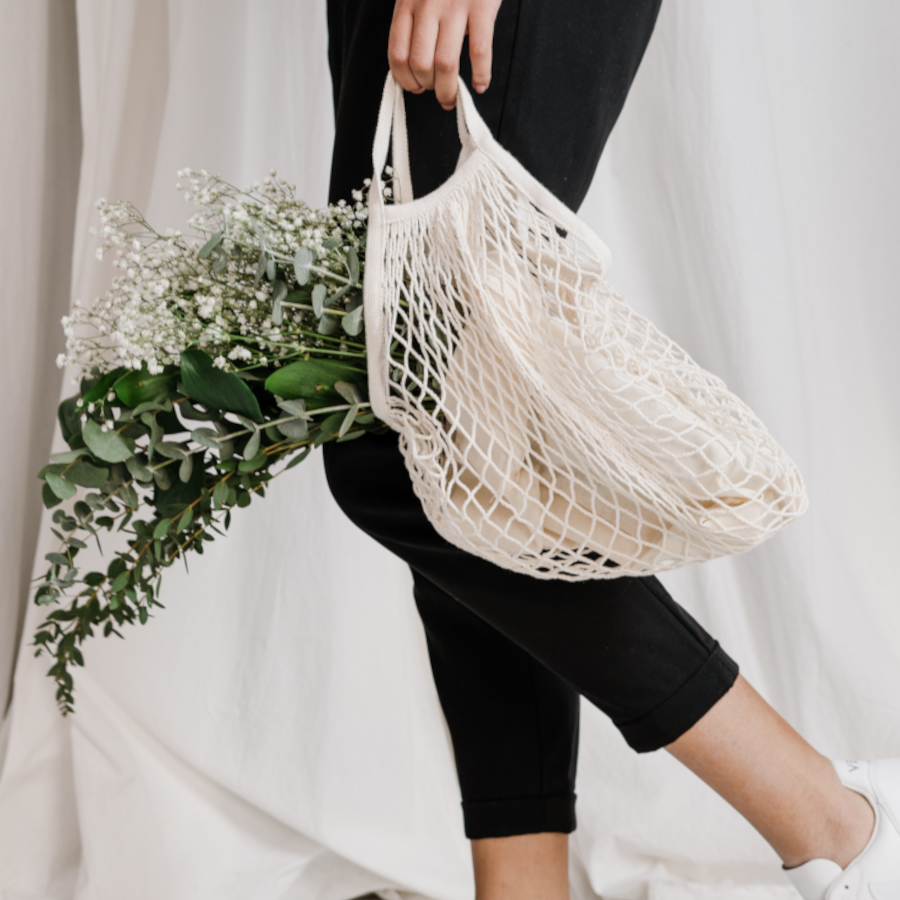25 – 90% OFF MARKETPLACE AND SALE ITEMS! | WE DELIVER! FREE SHIPPING OVER $250*
Parenting is a busy lifestyle and some conveniences are necessary, however making some small changes can have real impact on your family’s environmental foot print.
Little (and big) changes will set the tone for how your children will learn to live and consume. Help them to understand that when we throw something out, we are really just putting it somewhere else!
Here are a few tips and easy changes you can make.
1. Composting
Composting is a great way to show your children how nature works and they will love sorting and eventually cutting the green waste into smaller bits for a quicker break-down.
It may seem like quite an effort to start composting but in fact, it is quite easy. All you need is a space in your garden for a compost drum and a caddie in the kitchen. There are some fabulous composting systems available at Bunnings as that save you from having to dig the mulch out. Instead it simply falls into a bucket. The drum has two compartments, one for filling and one for curing. By the time you have filled one, the other is ready for emptying onto your roses or for re-potting your indoor plants.
Tip. It is important to add dry matter (carbon) every time you add fresh waste so it is a good idea to have a bag of straw next to the bin.
2. Food Storage
With little ones in the house, there is a lot in the fridge!
Storing your left over food in containers rather than using single use plastics like cling wraps can make a huge difference. Lidded containers – even washed take-away containers are great and it feels so good to reuse them – or if it is in a bowl, cover it with a plate (bonus: you can place something on top which you couldn’t if it was cling film).
3. Say No to Plastic Bags and Straws
Even the ones for fresh produce like fruit. Instead invest in a set of reusable mesh bags for this purpose. Trust me you will still have lots of bags on hand from bread etc. for when you do need one. Don’t forget that plastic bags can be washed and used again. Snap lock bags are strong and are very reusable. Just wash with soapy water, rinse and dry.
As for your bin liner, try to buy the rolls of biodegradable bags for this purpose. There are many brand on the market now.
Having trouble remembering your reusable shopping bags? Yes, new habits can be hard to form but if you put them back in the car boot as soon as you have emptied them, then at least they are on hand.
Keep a reusable bag in the pram too – just incase.
And as for plastic straws. Definitely say NO to those. Every time! You can buy so many alternatives in stainless steel, bamboo or silicone – but our favourites are these ones by eco rascals.

4. Recycle your Soft Plastics
If possible, create a bin just for soft plastic wrapping (from biscuits, chips, seals etc.), cling wrap and plastic bags that have come to the end of their life. Then take them with you to the supermarket when you next go (you will be surprised at the amount you generate in no time). Both Coles and Woolworths have special bins for this purpose, and I sure hope Aldi gets with the program very soon. Our local library also offers this service.
At the moment there is a lot of uncertainty regarding what happens to our general recycling (paper, glass and metal). It is a real worry and embarrassing that we haven’t found a solution, however keep recycling. Keep up the good work and habits that you have established so that when a solution is found (like Australian processing plants), our environment can benefit straight away.
5. Reusable Coffee Cup and Water Bottles
Although many cafes are changing to biodegradable cups, it is much better to avoid them in the first place. Simply keep a reusable cup in your car/hand bag/pram and enjoy the saving that most cafes offer when you bring your own.
I am sure you have a water bottle for yourself and the kids. Single use bottles are one of the worst offenders in our landfill and rumour has it that some of the so-called spring waters are no more than filtered tap water! If you are looking for a great adult water bottle, I recommend Contigo. Love their designs because you can lock them and avoid spillages in your bag (have had enough of those over the years)
6. Buy Bulk
Although it is so convenient with individually packaged snacks like biscuits & cheese and Tiny Teddies, you are paying a high price for the privilege and there is so much excess packaging. Once you are in the habit of making your own, you won’t look back. Some cute containers or (reused) snack bags lets you mix and change the contents and possibly also makes it easier to avoid too many processed products.
7. Buy pre-loved Kids Clothes
Our children grow so fast and many clothes are almost like new when they no longer fit and thanks to the internet and Facebook marketplace – it is easier than ever to sell and buy pre-loved items. It may require a bit more effort that dashing into K-Mart, but at least you can do it from your couch. This will help the amount of clothes in our landfill.
8. Consider less, but higher quality toys
The same goes for toys as it does for clothes. They become obsolete so quickly, so buying and selling pre-loved items can be a great option. Toys like blocks are open-ended in their application and your child’s imagination can run wild.
We sell some beautiful quality toys here and many of them are wonderful wooden educational toys.
Have a think about what you would like your child to play with and have in your house, and then let friends and family know. There is nothing worse that receiving a truck load of unwanted presents at a birthday.
9. Save on electricity and water
To save on electricity, if you can, put a solar system on your roof. If you can’t, use as little as possible. I know you’ve heard it a million times before but we have so many appliances and devices and we just use it all whenever. Turn the lights off when no one is in the room. Teach your kids to do the same. You will have to repeat yourself a hundred times but eventually it sinks in. Don’t fill the kettle up if you only need a cup and don’t boil it before you need it. Just boil it once. Avoid heating the oven up for just something small. Is there another option like the sandwich press? Or if the oven is on, is there something else you could cook at the same time?
Really what we have to do is treating water and electricity as a scarce resource. No rinsing or washing up under the running tap. Fill a bowl for rinsing so the water can go onto your plants after or be used to rinse off dirty dishes. Fill the dishwasher completely before running it and the same goes for the washing machine. Full loads only. The dryer is possibly your best friend for convenience but it’s your energy consumption enemy. We have mostly good drying days in Australia so hang out your washing. Even in winter in Melbourne I find that everything gets dry but it might take two days. No problem. We have plenty of clothes to see us through (I also LOVE the smell of fresh air that the clothes get after hanging outside for an extended period).
10. Items yet to be tackled
Disposable nappies are probably the greatest waste in a household with small children and sadly we don’t have a comprehensible solution for those yet (source). Add to that our tooth brushes, shampoo/soap bottles and so many other things that we use in our everyday life that don’t yet have a readily available alternative. But it will come. The sentiment is there and with a bit of pressure on manufacturers (via legislation?) to provide environmentally friendly products and packaging, we can do so much better. And we need to. Our natural world is suffocating.
Good luck with making a few changes. We know you can do it!
Related Insights

Ensuring Baby Safety: A Home Baby Proofing Guide
Home safety is a crucial aspect when it comes to protecting children from accidents and ensuring their well-being. Statistics show that most accidents involving children occur within the confines of their own homes.
Learn more
Toys that Enrich your Child’s Language
Some toys are better than others when the goal is to develop children’s communication skills. A general rule of thumb is, go for battery-free toys that activate your child’s imagination…
Learn more
How Role Playing Develops your Child
“Hey, let’s pretend I’m a princess and you’re the brave prince who comes to my rescue!” From around age 3, children begin to really play with each other. One of…
Learn more















